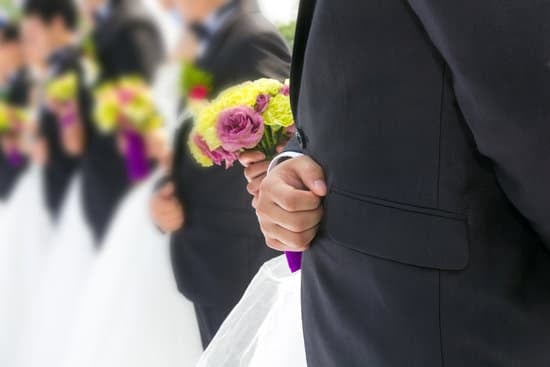When it comes to planning a wedding, one of the key considerations is the provision of alcohol for the celebration. Many couples are faced with the question of who pays for alcohol at weddings, a decision that can have financial and cultural implications. In this article, we will explore the traditional expectations surrounding alcohol payment at weddings, as well as modern trends and practical tips for managing alcohol costs.
Traditionally, providing alcohol at weddings has been a symbol of hospitality and generosity. It has long been considered a way to enhance the guest experience and create a joyful atmosphere for celebrating the union of two individuals. However, the question of who foots the bill for this tradition is not always straightforward and can depend on various factors such as cultural customs, financial circumstances, and personal preferences.
In recent years, there has been a shift in how alcohol costs are managed at weddings. Modern trends have seen a departure from strict adherence to traditional practices, allowing for more flexibility and creativity in navigating who pays for alcohol. Couples are now exploring alternative options and considering factors such as budget constraints and individual preferences when making decisions about alcohol payment at their wedding.
Who Traditionally Pays for Alcohol at Weddings?
Traditionally, the responsibility of paying for alcohol at weddings falls on the host or the couple getting married. This tradition varies across different cultures and regions, and it is important to consider the customs and expectations of the particular community when planning a wedding.
Family of the Bride and Groom
In many Western cultures, it has been common for the family of the bride to cover the cost of the wedding, including alcohol. However, in more modern times, this practice has evolved to be a joint effort between both families or even solely the responsibility of the couple getting married.
Wedding Hosts
The hosts of the wedding, whether it is a family member or close friend, are also commonly expected to foot the bill for alcohol. In some cases, this may mean that a close friend offers to pay for all or part of the alcohol as a generous gesture towards the couple.
Despite these traditional norms, modern weddings have seen various changes in who takes on this financial burden.
In today’s society, with many couples paying for their own weddings, there has been a shift in who pays for what. Couples now have more flexibility in deciding how they want to handle alcohol payment at their wedding. Some couples choose to cover all costs themselves, while others may opt to split expenses with their families or even ask guests to pay for their own drinks at certain types of weddings.
This decision ultimately depends on various factors such as personal finances and cultural expectations. Ultimately, it is crucial for couples and hosts to carefully weigh these factors before determining who will cover alcohol costs at a wedding.
Modern Trends and Changes in Alcohol Payment at Weddings
In the past, the tradition was for the bride’s family to cover the cost of alcohol at weddings. However, with changing cultural norms and financial dynamics, this tradition has evolved. Nowadays, it is becoming increasingly common for couples to shoulder the responsibility of paying for alcohol at their own wedding. This shift is reflective of modern attitudes towards independence and equality in relationships.
Couples are also opting for alternative methods of handling alcohol payment at their weddings. Some choose to have a cash bar, where guests pay for their own drinks, while others may offer a limited selection of complimentary drinks and then charge for premium options. Additionally, some couples are choosing to have an open bar but set a predetermined budget that they are willing to spend on alcohol, after which guests would have to purchase their own drinks.
When deciding who pays for alcohol at a wedding, there are various factors that need to be considered. The financial situation of both families, as well as the couple’s own resources, will play a significant role in making this decision. It is essential to communicate openly and honestly with all involved parties to ensure that everyone is comfortable with the chosen method of handling alcohol costs.
As modern trends continue to shape the landscape of wedding planning, it is important for couples to carefully consider their options when it comes to alcohol payment. Ultimately, the decision should align with their values and financial capabilities while also taking into account the comfort and enjoyment of their guests.
Factors to Consider When Deciding Who Pays for Alcohol at a Wedding
When it comes to deciding who pays for alcohol at a wedding, there are several factors that need to be taken into consideration. It’s important to consider the financial implications, logistical aspects, and cultural or religious expectations surrounding alcohol consumption. Here are some key factors to consider when making this decision:
Financial Considerations
One of the primary factors to consider when deciding who pays for alcohol at a wedding is the financial burden it may place on the couple or their families. Weddings can already be quite expensive, and adding alcohol costs on top of that can significantly impact the overall budget. It’s important to assess whether the couple or their families can afford to cover the expense of providing alcohol for all guests.
Logistical Aspects
Another important factor to consider is the logistics of providing alcohol at the wedding venue. This includes obtaining any necessary permits, hiring bartenders if needed, and ensuring there is a sufficient quantity and variety of drinks available for guests. The logistical aspects of providing alcohol may influence who ultimately takes on the responsibility of paying for it.
Cultural and Religious Expectations
It’s also essential to take into account any cultural or religious expectations surrounding alcohol consumption at weddings. In some cultures, it is customary for the bride’s or groom’s family to cover all expenses associated with the wedding, including providing alcohol for guests. However, in other cultures or religions, serving alcohol may not be acceptable or appropriate, which may influence whether or not it is provided and who pays for it.
Considering these factors can help couples and their families make an informed decision about who should ultimately be responsible for paying for alcohol at their wedding.
Options for Alcohol Payment at Weddings
When it comes to deciding who pays for the alcohol at a wedding, there are several options available to couples. One traditional option is for the bride’s family to cover the cost of the wedding reception, including the alcohol. Another traditional choice is for the groom’s family to pay for the alcohol. However, in modern times, many couples are choosing to pay for their own wedding expenses, including the alcohol.
In some cases, couples may choose to have a cash bar at their wedding, where guests pay for their own drinks. This can help alleviate some of the financial burden on the couple and their families, especially if they are on a tight budget. Another option is to provide a limited selection of complimentary drinks, such as beer and wine, while offering a cash bar for more premium options.
It’s important for couples to carefully consider their budget and personal preferences when deciding who will pay for the alcohol at their wedding. They should also take into account any cultural or religious expectations regarding alcohol consumption and payment at weddings. Ultimately, it’s essential to find a solution that works best for the couple and their families while also considering the comfort and enjoyment of their guests.
| Alcohol Payment Option | Description |
|---|---|
| Traditional Family Payment | In this option, either the bride’s family or groom’s family covers the cost of alcohol. |
| Cash Bar | This option involves guests paying for their own drinks. |
| Limited Complimentary Drinks | The couple provides a selection of complimentary drinks while offering a cash bar for additional options. |
Etiquette and Considerations for Guests in Regards to Alcohol at Weddings
Planning a wedding involves many decisions, including whether or not to provide alcohol for guests. For those attending a wedding, it’s important to be mindful of certain etiquette and considerations when it comes to alcohol. Here are some things to keep in mind:
- Be respectful of the host’s decision regarding alcohol. Whether the couple is providing an open bar, limited drinks, or no alcohol at all, it’s essential to respect their choice. It’s their special day, and guests should be understanding of their preferences.
- If the couple has opted for a cash bar or limited drinks, be prepared to cover your own alcohol expenses. This is becoming more common as couples look for ways to manage costs while still offering alcoholic beverages to their guests. It’s important for guests to be gracious and understanding about this decision.
- Drink responsibly and know your limits. While weddings are celebratory occasions, overindulging in alcohol can lead to embarrassing or inappropriate behavior. Guests should always drink responsibly and avoid excessive consumption of alcohol.
- Consider bringing a gift that reflects your gratitude for being invited to the wedding. If the couple has covered all expenses including alcohol, consider showing your appreciation with a thoughtful gift that reflects your gratitude.
It’s important for guests attending a wedding to be respectful of the couple’s decisions regarding alcohol and show appreciation for being included in their special day. By adhering to these etiquette guidelines and considerations, guests can ensure that they contribute positively to the overall atmosphere of the wedding celebration while respecting the wishes of the hosts.
Navigating Cultural and Religious Expectations Around Alcohol at Weddings
When it comes to alcohol at weddings, cultural and religious expectations can play a significant role in determining who pays for the alcohol. In many cultures and religions, the presence of alcohol at weddings is either encouraged or discouraged, leading to varying traditions and expectations.
Some cultures have strong traditions of providing alcohol at weddings as a way to celebrate and honor the couple. In these cases, it is often expected that the couple’s families or the hosts of the wedding will cover the cost of alcohol. This tradition reflects an emphasis on hospitality and generosity towards guests.
On the other hand, there are cultures and religions that discourage or prohibit the consumption of alcohol altogether. In such cases, providing alcohol at a wedding may not align with cultural or religious expectations. In these situations, alternative beverage options may be offered, or the couple may choose to forgo serving alcohol entirely.
Navigating cultural and religious expectations around alcohol at weddings can be complex, but it’s important to approach this aspect of wedding planning with sensitivity and respect for diverse beliefs and traditions.
- Understanding the cultural or religious background of both families involved in the wedding
- Consulting with family members or religious leaders to understand any specific guidelines or expectations regarding alcohol
- Communicating openly with all parties involved in the decision-making process
- Exploring alternative beverage options that align with cultural or religious beliefs
- Considering hosting separate events for different cultural or religious traditions if necessary
It’s important to remember that every wedding is unique, and the approach to navigating cultural and religious expectations around alcohol should be tailored to fit each individual situation. By being mindful of these considerations, couples can ensure that their wedding celebrations are inclusive and respectful of diverse cultural and religious beliefs.
Practical Tips for Managing Alcohol Costs at Weddings
When it comes to planning a wedding, one of the most significant expenses can be alcohol. Whether it’s an open bar, a cash bar, or something in between, alcohol costs can quickly add up. However, there are several practical tips that can help manage these expenses without sacrificing the enjoyment of your guests.
One of the most effective ways to manage alcohol costs at weddings is to set a budget from the beginning. By determining how much you are willing to spend on alcohol, you can make informed decisions about the type of bar you want to offer and the quantity of drinks available. This will also help you avoid any unexpected financial strain as you plan for your special day.
Another practical tip for managing alcohol costs at weddings is to consider alternatives to an open bar. For example, offering a limited selection of beer and wine or creating a signature cocktail can help control expenses while still providing options for your guests. Additionally, setting specific time frames for when the bar is open can also help regulate consumption and costs.
It’s also essential to work closely with your venue or caterer when managing alcohol costs at weddings. They may be able to provide valuable insights and suggestions based on their experience with previous events. Additionally, purchasing alcohol in bulk or opting for a BYOB (bring your own bottle) policy may also present cost-effective solutions that align with your budget and preferences.
| Tip | Description |
|---|---|
| Set a budget | Determine how much you are willing to spend on alcohol. |
| Consider alternatives | Offer limited drink selections or create a signature cocktail. |
| Work with venue/caterer | Seek their advice and consider bulk purchases or BYOB policies. |
Conclusion
In conclusion, the question of who pays for alcohol at a wedding is one that can vary greatly depending on individual circumstances, traditions, and cultural expectations. While there are traditional norms in place regarding alcohol payment at weddings, modern trends and changes in societal norms have led to more flexibility in how this aspect of the wedding is managed.
When deciding who will be responsible for paying for alcohol at a wedding, it’s important to consider various factors such as budget constraints, cultural or religious expectations, and the preferences of both the couple getting married and their families. Options for alcohol payment at weddings range from fully hosted bars to cash bars, and each option has its own set of pros and cons.
Ultimately, finding the best solution for alcohol payment at a wedding comes down to open communication between all parties involved. Couples should feel empowered to make decisions that align with their values and priorities for their special day. And guests should approach the matter with understanding and respect for the choices made by those hosting the event. By navigating these considerations thoughtfully and respectfully, couples can ensure that their wedding celebration is an enjoyable and memorable occasion for all.
Frequently Asked Questions
Who Pays for Alcohol at Weddings?
The responsibility for paying for alcohol at weddings can vary depending on the cultural or family traditions. In some cases, the bride’s family may cover the cost, while in other situations, it may be split between both families or even paid for by the couple themselves.
Do Grooms Family Pay for Alcohol?
Traditionally, the groom’s family may contribute to the overall wedding budget, which could include covering part of the alcohol expenses. However, this is not a hard and fast rule and modern weddings often involve more flexible arrangements when it comes to who pays for what.
Who Traditionally Pays for What in a Wedding?
Traditionally, the bride’s family is responsible for covering certain expenses such as the reception venue, decorations, and sometimes the wedding dress. On the other hand, the groom’s family traditionally takes care of expenses like the rehearsal dinner and possibly alcohol costs.
However, these traditions are not set in stone and can vary widely depending on individual circumstances and preferences.

I have been involved in marriages for over 20 years helping couples and singles understand more about them.





